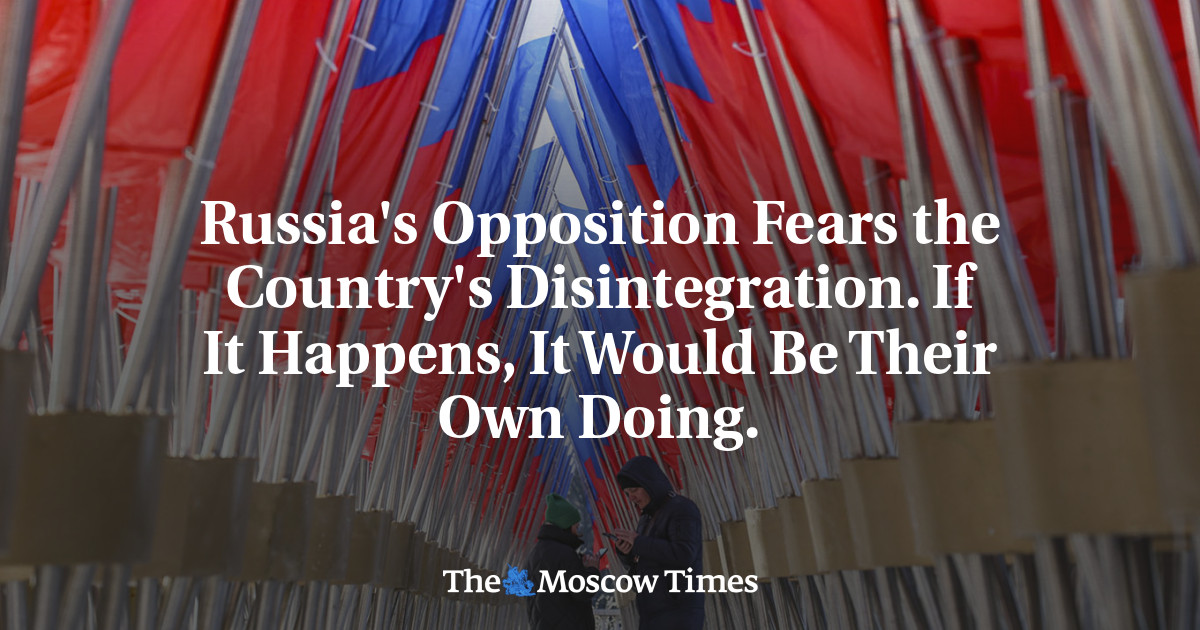
Russia’s Opposition Fears the Country’s Disintegration. If It Happens, It Would Be Their Own Doing.
How did your country report this? Share your view in the comments.
Diverging Reports Breakdown
Russia’s Opposition Fears the Country’s Disintegration. If It Happens, It Would Be Their Own Doing.
MT’s special correspondent Leyla Latypova reflects on a recent Russian opposition event that she attended in a European capital. She found the unhealthy power dynamic between the ethnic Russian majority and the few Indigenous attendees reflective of the troubles brewing inside the country. Until fairly recently, these gatherings have been largely homogeneous, bringing together the usual figures from Moscow and St. Petersburg. But as voices from Russia’s ethnic republics have become increasingly noticeable to international actors, conference organizers have started introducing tacit quotas for Indigenous representatives. These quotas do not help to build bridges between Moscow liberals and the communities colonized by Russia.
This week, MT’s special correspondent Leyla Latypova reflects on a recent Russian opposition event that she attended in a European capital. Although it ostensibly united exiled activists and opinion makers, she found the unhealthy power dynamic between the ethnic Russian majority and the few Indigenous attendees reflective of the troubles brewing inside the country.
Subscribe here so you never miss an issue.
When you imagine a gathering of exiled Russian opposition activists and thinkers, you likely picture something like a parliamentary debate in a Western democracy: a passionate discussion punctuated by the occasional lighthearted moment, not unlike the viral exchange between then-Prime Minister Mark Rutte and PVV leader Geert Wilders in the Dutch parliament.
But as a male Russian colleague stood up behind me and interrupted me by shouting “Nice question!” in a tone so hostile that I expected an ethnic slur to follow right after, I felt transported back to my Russian school, where the resident bully made himself heard from the back of the class as I scrambled to solve a math problem on the whiteboard.
In line with Chatham House Rules and to adhere to safety guidelines, I will not disclose names, location or other details of the gathering where this interaction occurred. These details are rather inconsequential for the scope of this piece.
Exiled Russian opposition politicians and activists have been meeting to strategize for a post-Putin world since the early months of the invasion of Ukraine.
Until fairly recently, these gatherings have been largely homogeneous, bringing together the usual figures from Moscow and St. Petersburg.
But as voices from Russia’s ethnic republics have become increasingly noticeable to international actors — thanks to the efforts of dozens of Indigenous rights and decolonial groups facing mass repressions at home — conference organizers have started introducing tacit quotas for Indigenous representatives.
This hardly makes these events more reflective of the diversity found inside Russia. Indigenous people remain disproportionately underrepresented on panels and among attendees.
More importantly, these quotas do not help to build bridges between Moscow liberals and the communities colonized by Russia.
When it comes to envisioning the future of their nations, Russia’s Indigenous activists and thinkers are firmly divided into two camps: the federalists and the proponents of independence.
While the former believe that their republics can exist as part of a reconceptualized Russian Federation, the latter believe that their communities will not have access to justice and enjoy rights guaranteed to them by international law unless they become independent states.
Members of the Russian opposition and many of their Western allies are petrified of the idea of Russia’s disintegration along its regional borders following the inevitable end of Putin’s reign.
Yet their behavior towards Indigenous counterparts — like what I witnessed at this recent conference — makes that unwelcome scenario increasingly likely.
